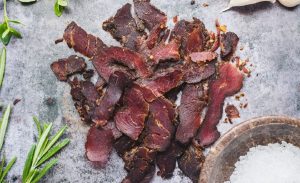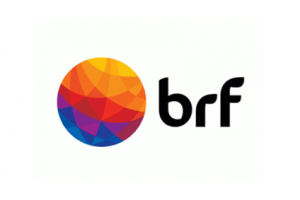First-of-its-kind decision could impact the way billions of people eat meat in the future
Answering this theological question is a meaningful step forward for international acceptance of cultivated meat since halal consumers represent about 25% of the world’s population.
This landmark Shariah opinion from a trio of well-respected scholars in Saudi Arabia comes as cultivated meat begins to enter commerce in the United States and consumers around the world are learning how meat made in this new way can help address global food systems challenges connected to climate change, food safety, food security and animal welfare. With the Muslim population rapidly increasing, so too is their meat consumption.
The global halal meat market was a US$202 billion business in 2021 and is estimated to reach US$375.05 billion by 2030, according to some estimates.
The Shariah scholars reviewed documentation prepared by GOOD Meat and attorneys at AlDhabaan & Partners in association with Eversheds Sutherland that described how cultivated chicken, the company’s first product, is made. The panel studied details about how the cells are sourced and selected, the ingredients fed to the cells to stimulate growth, how the cells are harvested and how finished products are manufactured.
 GOOD Meat also engaged the Halal Product Advisory, a Division of Halal Product Development Company, a fully owned subsidiary of the Public Investment Fund of Saudi Arabia, to advise and assist the company with the official process for halal pre-certification in Saudi Arabia and globally.
GOOD Meat also engaged the Halal Product Advisory, a Division of Halal Product Development Company, a fully owned subsidiary of the Public Investment Fund of Saudi Arabia, to advise and assist the company with the official process for halal pre-certification in Saudi Arabia and globally.
The scholars concluded that cultivated meat can be halal under the following conditions:
The cell line is from an animal that is permissible to eat, such as a chicken or a cow
The animal the cell line is extracted from is slaughtered according to Islamic law
The nutrients fed to the cells are permissible to eat, and do not include any substances that are forbidden to be eaten such as spilled blood, alcohol or materials extracted from animals that have not been slaughtered properly or pigs
The cultivated meat is edible and that it does not harm human health, and this is confirmed by referring to specialists, such as a country’s food regulatory agency. GOOD Meat’s chicken cell line and production process that were approved by regulators in the U.S. and Singapore do not yet meet the above criteria, however, with this clarity the company will work on a process to meet the halal guidelines moving forward.
“If cultivated meat is to help address our future food system needs, it has to be an option for the billions of people around the world who eat halal. This landmark ruling provides much needed clarity on how to ensure that is achieved. All companies should work to build a process to meet these guidelines,” said GOOD Meat co-founder and CEO Josh Tetrick.
The above ruling is a positive sign for cultivated meat companies that want to serve areas of the world with large Muslim populations, like the Middle East. In fact, a recent poll of more than 2,000 consumers in six key Middle East countries found that a vast majority of respondents would purchase cultivated meat and switch to it from conventional meat, assuming it was halal, sold at a comparable cost and tasted the same as what they are used to. The GOOD Meat-commissioned study released at last year’s United Nations Climate Change Conference polled consumers in Saudi Arabia, Qatar and other countries in the region.
In the poll conducted by PSB Insights, a leading independent consulting firm, climate messaging was one of the most effective tools to influence purchase intent. A recent article in the journal Frontiers in Nutrition sheds some light on that motivation, pointing out that eating halal cultivated meat may be considered by some as a step toward Khilafa (guardianship of nature). The authors note that “adoption of a diet with a lower environmental impact, via consumption of alt protein products, may be considered a way to uphold at least two of the five key principles: the preservation of life and linage.”
The Shariah scholars who issued the new opinion included:
Sheikh Abdullah AlManea
Sheikh Abdullah AlManea is a well-respected Shariah scholar both nationally and internationally. He has been a member of the Senior Scholars Committee in the Kingdom of Saudi Arabia since 1971, as well as an appointed member of the International Islamic Fiqh Academy. He was the former President of the Makkah Al-Mukarramah Courts, and currently sits on the Shariah advisory board of many banks in the Kingdom. He is also an advisor to the Royal Saudi Court. His expertise in Islamic jurisprudence has positioned him as a sought-after authority in issuing fatwas (Islamic legal rulings).
Professor Abdullah al-Mutlaq
Professor Abdullah al-Mutlaq is a prominent Shariah scholar and a member of the Senior Scholars Committee in the Kingdom of Saudi Arabia. He was the former head of the Department of Comparative Jurisprudence at the Higher Judicial Institute and is currently an advisor to the Royal Saudi Court. He has made significant contributions to the fields of Islamic jurisprudence, education, and public service. His scholarly work has enriched Islamic libraries and has been cited in academic circles.
Professor Saad Al-Shathry
Professor Saad Al-Shathry is a distinguished Shariah scholar. He is an advisor to the Royal Saudi Court, member of the Senior Scholars Committee in the Kingdom of Saudi Arabia, as well as a current member of the Permanent Committee of Ifta’a. He is the author of over 60 books and has published more than 10 articles in scholarly journals. He is known for his advocacy of moderation and balanced interpretation of Islamic teachings, and his influence extends far beyond the Kingdom, reaching a global audience.
About Eat Just, Inc.
Eat Just is a food technology company with a mission to build a healthier, safer and more sustainable food system in our lifetimes. The company’s expertise, from functionalizing plant proteins to culturing animal cells, is powered by a world-class team of scientists and chefs spanning more than a dozen research disciplines. Eat Just created one of America’s fastest-growing egg brands, which is made entirely of plants, and the world’s first-to-market meat made from animal cells instead of slaughtered livestock. The company has been recognized as one of Fast Company’s “Most Innovative Companies,” Entrepreneur’s “100 Brilliant Companies,” CNBC’s “Disruptor 50” and a World Economic Forum Technology Pioneer.
JUST Egg has been named among Popular Science’s “100 Greatest Innovations” and Fast Company’s “World Changing Ideas” and the history-making debut of GOOD Meat was heralded as one of 2020’s top scientific breakthroughs by The Guardian, Vox and WIRED.
For more information on JUST Egg, visit https://ju.st/newsroom.
For more information on GOOD Meat, visit http://goodmeat.co/newsroom.
View source version on businesswire.com: https://www.businesswire.com/news/home/20230910333327/en/
*Source: AETOSWire
Contacts
Andrew Noyes
press@goodmeat.co



